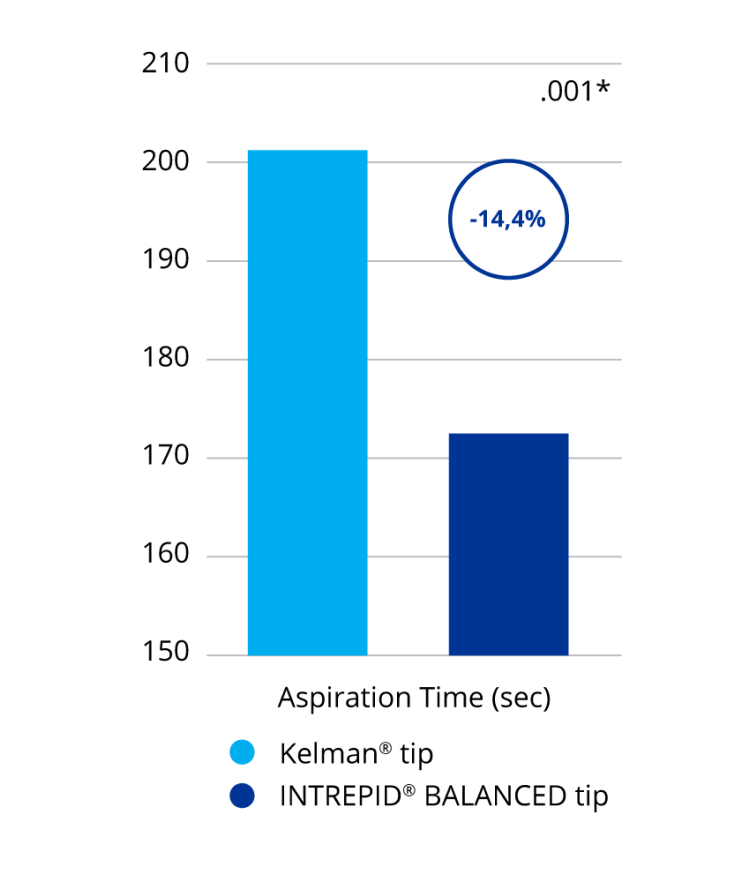CENTURION® Silver System
The Most Advanced Gravity System1-3*
Step up your practice with the most advanced gravity phaco system with stability and efficiency

*Comparison with the Stellaris† PC (Bausch&Lomb), WHITESTAR SIGNATURE† (AMO), EVA† (DORC).
†Trademarks are the property of their respective owners.
CENTURION® Silver System The Most Advanced Gravity System1-3*
Step up your practice with the most advanced gravity phaco system with stability and efficiency

*Comparison with the Stellaris† PC (Bausch&Lomb), WHITESTAR SIGNATURE† (AMO), EVA† (DORC).
†Trademarks are the property of their respective owners.
Increased Stability During Phacoemulsification
With superior surge protection at higher vacuum levels, CENTURION® Silver System reduces the risk of posterior capsular rupture (PCR) and other capsule-related problems.2-9*
CENTURION® Silver shows surge protection comparable to CENTURION® Active Fluidics™*

Gravity fluidics at 90 cm bottle height
CENTURION® Active Fluidics™ with IOP target of 65 mmHg (Equiv. Approx. 90 cm H2O)
*Comparison with Stellaris† PC (Bausch + Lomb), WHITESTAR SIGNATURE† (AMO), EVA† (DORC). This comparison did not include ACTIVE SENTRY®.
†Trademarks are property of their respective owners.
Surge Volume After Occlusion Break7
(IOP 55 mmHg; Vac setting 550 mmHg; Asp 40 cc/min; 55 mmHg = 75 cm H2O)

- 50% faster recovery from surge
- 50% less surge
Centurion® Vision System with ACTIVE SENTRY® Handpiece
Explore how to bring surge protection to the next level

Enhanced Efficiency

Intuitive
User Experience
CENTURION® Silver System’s intuitive graphic user interface enables quick adjustment and enhanced customisation of surgical parameters and settings.1

Related Products
CENTURION® Vision System with ACTIVE SENTRY® Handpiece
The leading technology in phacoemulsification, offering a new baseline of safety, consistency and efficiency in every cataract procedure.2,4,10,14-18

LEGION® System
A CENTURION®-based portable phacoemulsification system bringing stability, efficiency and convenience to the clinic.2,4-6,8,9

INTREPID® Phaco Tips and I/A Handpieces
Enhance phaco procedures by merging CENTURION®-based systems technology with the effectiveness and versatility of the INTREPID® Hybrid Tip, INTREPID® BALANCED tip and INTREPID® Transformer I/A Handpiece.11,12,19,20

Clinical Support
Technical Specifications

Instructions for Use (IFU)
For a full list of indications, contraindications and warnings, please visit ifu.alcon.com and refer to the relevant product’s instructions for use.
Alcon Experience Academy
For relevant training content from industry thought leaders
References
1. CENTURION® Silver System Operator’s Manual.
2. Aravena C, Dyk DW, Thorne A, Fanney D, Miller KM. Aqueous volume loss associated with occlusion break surge in phacoemulsifiers from 4 different manufacturers. J Cataract Refract Surg. 2018 Jul;44(7):884-888.
3. Sharif-Kashani P, Fanney D, Injev V. Comparison of occlusion break responses and vacuum rise times of phacoemulsification systems. BMC Ophthalmol. 2014;14:96.
4. Thorne A, Dyk DW, Fanney D, Miller KM. Phacoemulsifier occlusion break surge volume reduction. J Cataract Refract Surg. 2018 Dec;44(12):1491-1496.
5. Nicoli CM, Dimalanta R, Miller KM. Experimental anterior chamber maintenance in active versus passive phacoemulsification fluidics systems. J Cataract Refract Surg. 2016;42(1):157:162.
6. Dyk DW, Miller KM. Mechanical model of human eye compliance for volumetric occlusion break surge measurements. J Cataract Refract Surg.2018 Feb;44(2):231-236.
7. Alcon Data on File, REF-08357, 2020.
8. Narendran N, et al. The Cataract National Dataset electronic multicentre audit of 55 567 operations: Risk stratification for posterior capsule rupture and vitreous loss. Eye. 2009;23:31–37.
9. Salowi MA, et al. The Malaysian Cataract Surgery Registry: Risk indicators for posterior capsular rupture. Br J Ophthalmol. 2017;101:1466–1470.
10. Khokhar S, Aron N, Sen S, Pillay G, Agarwal E. Effect of balanced phacoemulsification tip on the outcomes of torsional phacoemulsification using an active-fluidics system. J Cataract Refract Surg. 2017;43(1):22-28.
11. Zacharias J. Thermal characterization of phacoemulsification probes operated in axial and torsional modes. J Cataract Refract Surg. 2015;41(1):208-216.
12. Noguchi S, et al. Difference in torsional phacoemulsification oscillation between a balanced tip and a mini tip using an ultra-high-speed video camera. J Cataract Refract Surg. 2016;42:1511–1517.
13. Hiroyuki Matsushima. Presentation in the 119th annual meeting of the Japanese Ophthalmological Society, 17 Apr 2015.
14. CENTURION® Vision System Operator's Manual.
15. Alcon Data on File, REF-02559, 2017.
16. Malik PK, Dewan T, Patidar AK, Sain E. Effect of IOP based infusion system with and without balanced phacotip on cumulative dissipated energy and estimated fluid usage in comparison to gravity fed infusion in torsional phacoemulsification. Eye Vis (Lond). 2017;4:22.
17. Zacharias J. Laboratory assessment of thermal characteristics of three phacoemulsification tip designs operated using torsional ultrasound. Clin Ophthalmol. 2016:10;1095–1101.
18. Vasavada AR, et al. Comparison of torsional and microburst longitudinal phacoemulsification: A prospective, randomized, masked clinical trial. Ophthalmic Surg Lasers Imaging. 2010;41(1):109-114.
19. Alcon Data on File, REF-07136, 2019.
20. Intrepid® Transformer I/A Handpiece Directions for use.


















